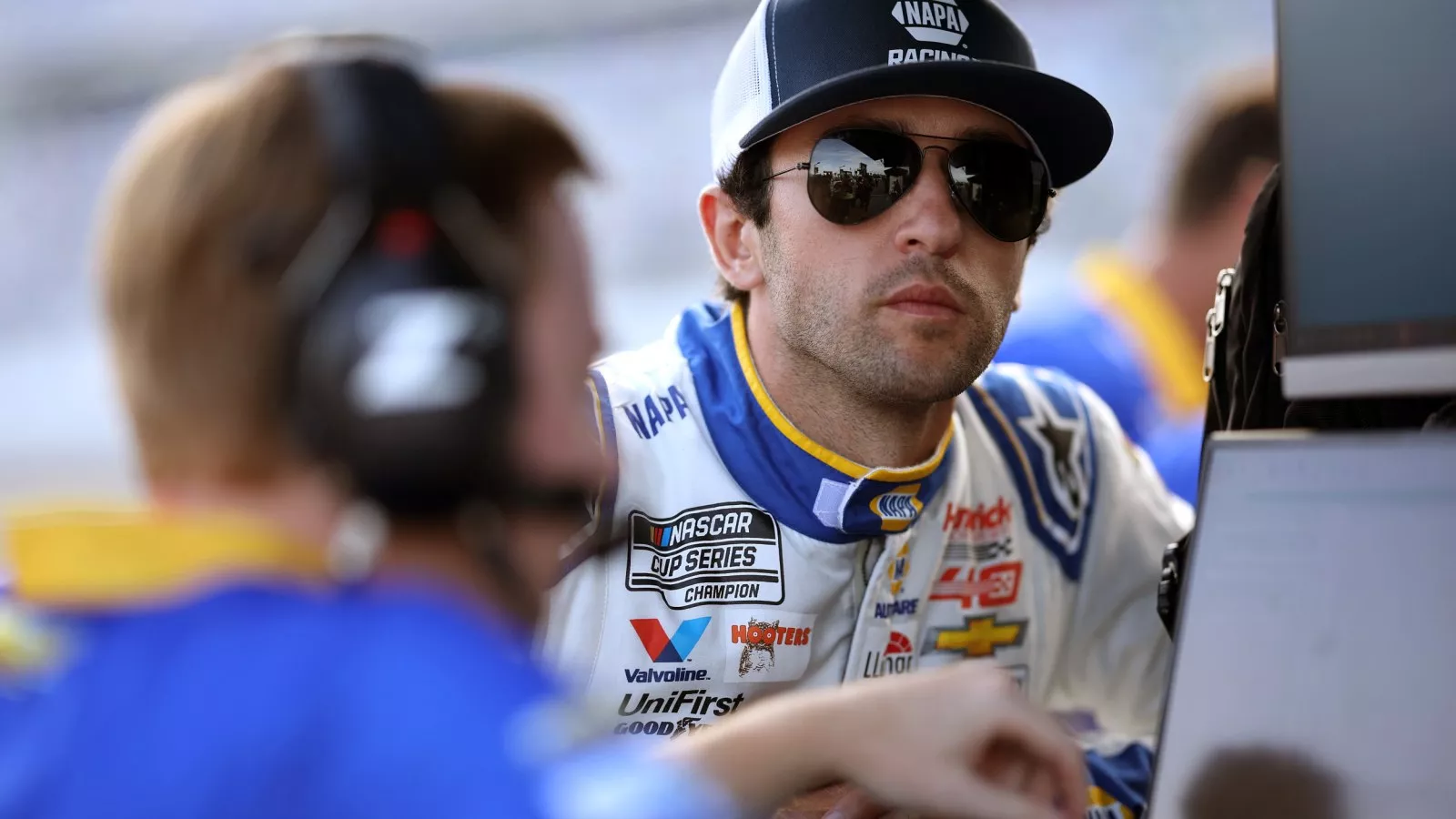
In the world of NASCAR, the playoff structure often sparks debate among fans, analysts, and drivers. Recently, Harrison Burton, a promising young driver, found himself in the spotlight, with some questioning the validity and fairness of the NASCAR playoff system. Chase Elliott, one of NASCAR’s top drivers and a strong advocate for the sport, stepped up to defend Burton and the playoff format, emphasizing the importance of the system and its role in shaping the competition.
Harrison Burton, a driver for Wood Brothers Racing, has been making waves as a rising talent in the NASCAR Cup Series. However, like many young drivers, he faces scrutiny and skepticism, especially when it comes to the intricacies of the playoff system. The NASCAR playoff format, which was introduced in 2004, aims to bring excitement and a higher level of competition to the sport by featuring a series of elimination rounds that ultimately decide the champion. This system, while thrilling, has also faced criticism for being overly complex and sometimes perceived as unfair.
Chase Elliott, the 2020 NASCAR Cup Series champion and one of the sport’s most popular drivers, has been vocal about his support for the playoff system. Elliott’s defense of Burton and the structure reflects his deep understanding of the sport and his belief in the fairness and excitement that the playoffs bring to NASCAR.
Elliott argues that the playoff format, despite its complexity, is designed to reward consistency and performance across a broad spectrum of the season. It is not just about individual races but about the ability to perform well over an extended period, culminating in a high-stakes final showdown. He emphasizes that the system provides a clear pathway for drivers like Burton to prove themselves on a big stage, which is essential for the sport’s growth and the development of new talent.
Moreover, Elliott points out that the playoff format adds an element of drama and suspense that is crucial for fan engagement. The structure creates a narrative of progression and survival, making each race and each point more significant as drivers compete for a chance to advance. This format ensures that every race has weight and every point counts, which keeps fans invested throughout the season.
Elliott’s defense of the playoff system also underscores the broader impact it has on drivers like Burton. By participating in the playoffs, young drivers get a valuable opportunity to showcase their skills under pressure, gain experience, and build their reputations. For Burton, who is still early in his career, being part of this competitive environment is a chance to grow and demonstrate his potential.
In response to doubts about the system, Elliott suggests that while criticisms are inevitable, the playoff format has proven to be effective in delivering exciting and fair competition. It levels the playing field by emphasizing performance and resilience, rather than just raw speed or early-season success. This, Elliott believes, helps in identifying true champions who can excel in high-pressure situations.
In conclusion, Chase Elliott’s defense of Harrison Burton and the NASCAR playoff structure highlights his commitment to the sport and his belief in its competitive integrity. By supporting the system, Elliott reaffirms its role in fostering excitement, fairness, and opportunity within NASCAR. The playoff format, with its emphasis on consistency and performance, continues to be a cornerstone of the sport, shaping its narratives and ensuring that every race counts in the quest for the championship.
Leave a Reply